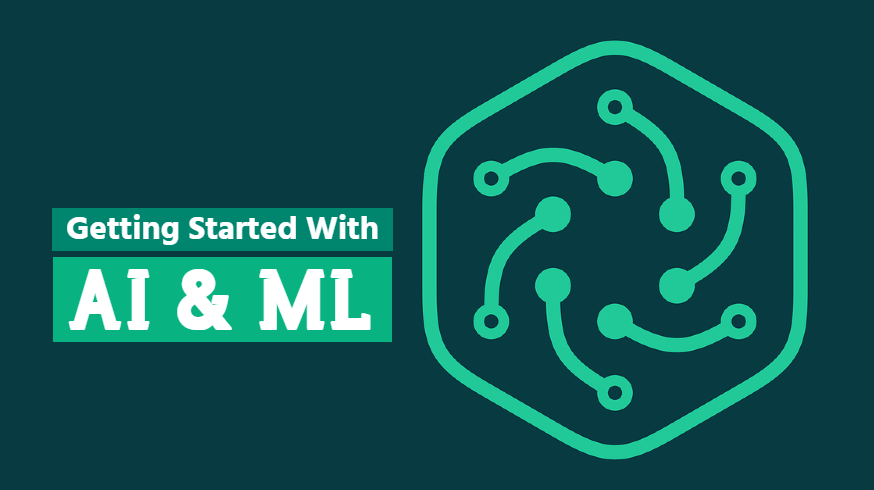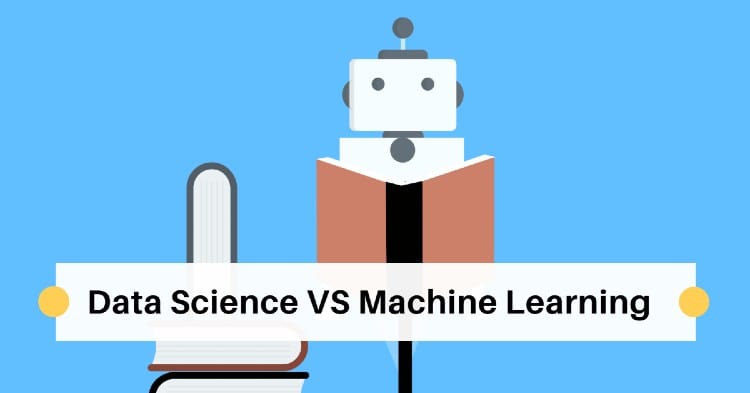Welcome to the age of AI and ML, where robots are no longer just a part of science fiction films but a reality and a part of our everyday lives. Artificial intelligence (AI) is a fascinating and versatile field. It has various applications in all industries. Machine learning (ML) is a more specialized aspect of AI and provides knowledge about algorithms and statistical models to create computer systems.
Computers are smart and can make human work easier, but they can’t learn independently and need help. It is exciting and, at the same time, challenging to learn this field of study. It is still evolving, and a lot is happening with too many options for you to discover. You can start where you have the most interest and follow it. Let us delve deeper into the subject.
Understanding the Best Way to Learn Artificial Intelligence
With AI, you can build computer programs that mimic human intelligence to complete tasks and solve problems using massive data sets. AI study includes machine learning, deep learning, and natural language processing.
Narrow AI can adapt to inputs and only works within the given parameters. For example, narrow or weak AI can be recommendations from your streaming platform, games, and smart speakers. Strong AI, on the other hand, is associated with robots and will be widely popular in the near future.
Why Learn AI?
AI is the skill of the century; it will add a lot of value in paving the path for tomorrow. AI may replace many jobs that humans do today, it will lead to a transformation, and the field is at the forefront of finding solutions to society’s most pressing problems, like diseases, pollution, and climate change. Generative AI training will prepare you for a challenging and highly rewarding career.
AI applications help in decision-making, improve performance, and increase efficiency. With the evolution of data, AI and ML have started to evolve; these are largely used in cybersecurity to filter information and provide real-time insights. Some popular applications of artificial intelligence are:
- Facial Recognition
- Detection of Cancers and Tumors in Healthcare
- Industrial Robots
- Self-driving Automobiles
- Guidance of Missiles in Defense Systems
- Machine Learning, and Analytics
Tips to Getting Started with AI
By 2030, the demand for computer and information research jobs is expected to grow by 22%. If you are confused and unsure where to start, here’s a breakdown of the field of AI and how you can follow these steps to learn artificial intelligence.
1. Understand the Prerequisites
To learn AI, you should have a strong foundation in computer science. Probability and Statistics are also integral parts of AI, and Mathematics is necessary to master AI. You must know about data structures to input data for your program.
2. Ace AI Theory
Once you’ve been trained and learned the prerequisites of AI, you can delve into AI theory. It can be learned through an in-person class or online AI and ML course; some important topics are:
- Problem-solving: AI involves several techniques, including algorithms and heuristics. There is an agent and its environment in AI focused on achieving its goal.
- Reasoning: Machines are incapable of thinking, so you must be able to draw conclusions or make predictions based on your knowledge of algorithms.
- Deductive Reasoning & Inductive Reasoning: Deductive reasoning uses existing data, and inductive reasoning derives a general conclusion from specific observations.
- Abductive Reasoning: This is the process of drawing a conclusion that fits the observations but doesn’t guarantee the conclusion.
- Common-sense Reasoning: It is an informal type of reasoning based on past experiences. It does not use rules but instead makes proper judgments to increase the likelihood of solving a problem.
- Monotonic Reasoning – It uses a conclusion without changing it, even if additional facts are added.
- Non-monotonic Reasoning: It uses a conclusion, and new information can be added. This type of reasoning is helpful in AI applications such as robotic navigation systems.
- Data Manipulation – AI relies on data sets to learn and to make predictions.
3. Master Data Processing
It is a significant aspect of AI, as almost all businesses incorporate data-driven decision-making into their strategies. This is possible through machine learning, and you may opt for a career in data preprocessing, machine learning engineering, etc.
4. Learn the Right Tools and Work on AI Projects
SciKit-Learn, TensorFlow, and PyTorch are some of the important tools you must learn to use. Start with projects that require simple algorithms and gradually increase your skill level. A practical, hands-on approach is necessary to boost your skills. Choose projects based on your interests that add value to your community.
5. Opt for AI Courses
It is best to choose a formal course to learn AI; it will accelerate the process and provide some structure. You will also receive valuable feedback and can apply for an internship after finishing your classes. Make a portfolio before looking for a job; real-world experience will help you immensely to solve problems.
You have three directions from here: Machine Learning, Data Scientist, and Data Engineering.
What is Machine Learning?
Machine learning is a branch of AI; it teaches computers to learn and improve their processes with minimal human intervention. It can detect complex and subtle patterns using data sets and pattern recognition.
There are two main types of machine learning: supervised learning, where you can collect data from a previous output and give the computer a training set of data points, and unsupervised learning, in which the algorithm recognizes the inherent structure of the data without a training set.
The step to machine learning begins with understanding the prerequisites and theory of AI. In addition, you may learn other data science and data analysis tools like Pandas, NumPy, and Matplotlib.
What Does a Machine Learning Engineer Do?
When you are getting started with machine learning engineering, you must know the context of how ML will help you solve problems, the form of data you need, modeling, production, and how you can improve how you do things.
What Does a Data Scientist Do?
If you study AI, you can take this career path involving working with data and mathematical models to find information. The two main components of data science are – Statistics and Data Visualisation. Data scientists use ML to develop solutions for business problems.
Mastering the prerequisites of AI is necessary for learning data science. It is a branch of AI, and you can master data cleaning, utilize existing data sets for projects, gain experience, and contribute to valuable work.
What Does a Data Engineer Do?
You can also study data engineering to design and transform data into a usable format. It uses databases, servers, and large-scale processing systems. You may choose advanced subjects such as Deep Learning Engineer and Big Data Engineer. Other subfields of AI that you can explore are:
- Object Recognition
- Robotics
- Speech Processing
- Expert Systems
- Natural Language Processing
Data engineering provides the raw materials for data-related AI tasks. ML and AI require massive amounts of data, which can only be scaled with data engineering. Most data created daily is unstructured; a data engineer transforms it into usable formats for AI developers.
Points to Remember to Learn AI and ML
- When you want to learn AI from scratch, start with a basic understanding of the field and the broad categories of AI.
- It is also essential to know the reasons why you should learn AI and the career choices you will have.
- Learn the AI tools, strengthen your mathematical concepts, programming languages, and more.
- The three career paths are machine learning, data science, and data engineering. Advanced topics like big data and deep learning will be practiced after this.
- AI is a vast domain; however, with the help of a simple step-by-step guide, you can have a clear pathway paved for you.
Conclusion
AI is one of the most critical technologies in the world. It includes all systems, methods, and robots performing intelligent actions, while ML only focuses on AI methods and applications to change their decision patterns based on data. AI includes some advanced and complex concepts and may seem difficult for people from a background that didn’t focus on computer science and mathematics.
However, choosing a good program and a good instructor can make a huge difference and set your path for the future. It shall open up endless possibilities and give you the power to bring the change you wish to see.




